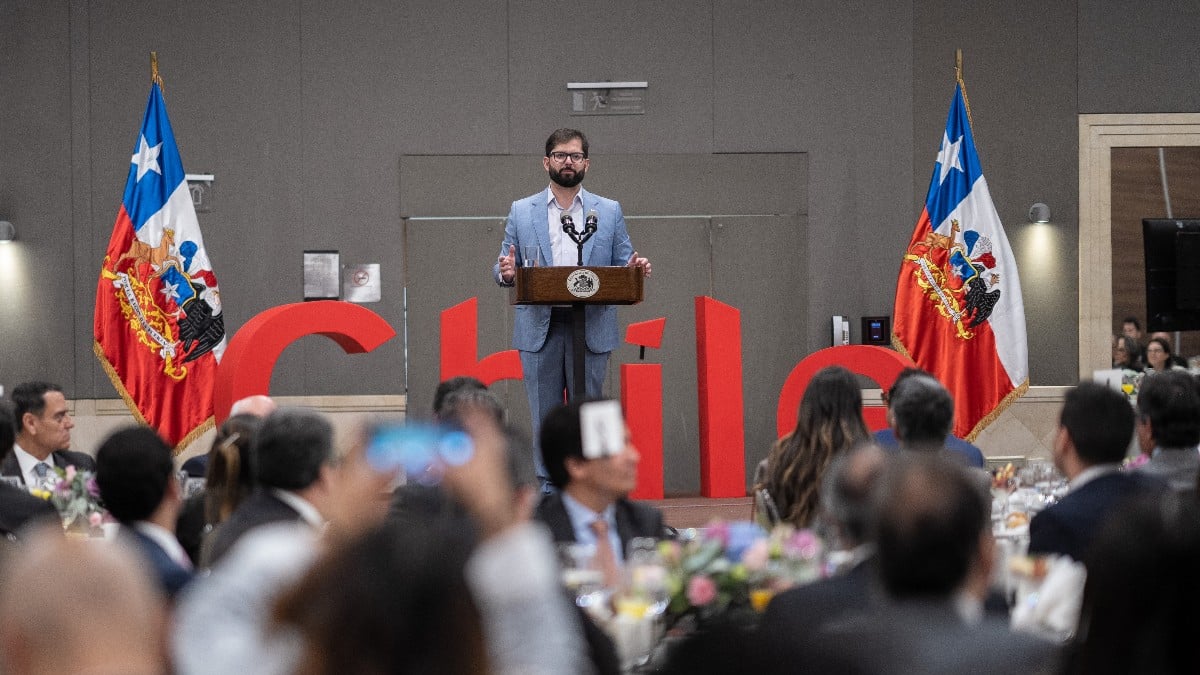By Daniela Carrasco
One of Gabriel Boric’s most worrying presidential campaign promises was a pardon for the so-called “political prisoners.” And, unfortunately, he kept his word on the last business day of 2022, since the Chilean president released thirteen convicted by justice.
Among them is an insurrectionist who was a member of the Manuel Rodríguez ‘Patriotic’ Front (FPMR) and was previously convicted twice. Thus, the first controversy of 2023 has already begun, both that the Prosecutor’s Office and the Supreme Court reminded the Executive of the separation of powers and the rule of the Constitution.
For the revolts of 18-O, the then deputy of the Broad Front Gabriel Boric —together with his companions from the bench— encouraged civil disobedience while anomie and insurrection completely captured Chile. Remembered are the postcards of the burning of subway stations simultaneously, the burning of churches and temples, the looting and destruction of public and private property, in a climate of extreme polarization.

18-O represented a fracture for Chileans. Even today, in the so-called “ground zero” —that is, Plaza Baquedano, where the protests were concentrated— it has not been able to recover, leaving as a balance the closure of numerous stores and hotels.
With all of the above, the President of Chile announced on the last day of 2022 that he would pardon thirteen convicted of serious crimes in the context of 18-O because they would supposedly be “political prisoners.” But the reality is that those who received the benefit are not condemned for their thoughts, but for their violent crimes committed.
For example, one of those pardoned is Jorge Mateluna, a former guerrilla member who was part of the Manuel Rodríguez ‘Patriotic’ Front (FPMR) terrorist group and convicted twice before: in 2013 he was sentenced to 16 years in prison for robbing a branch of the Santander Bank; and in 1992 to 12 years in prison for crimes of illegal terrorist association.
Despite the above, the Chilean president justified Mateluna’s pardon because, supposedly, he would be “innocent” because there would be “irregularities” in his sentence. However, according to the Chilean outlet El Líbero, Boric already had connections with Mateluna since his term as a deputy, since in 2017 he visited him in the High Security Prison and has been an active promoter of his release.
Boric’s statements that questioned the work of the Judiciary caused the Supreme Court to rule, holding that Boric “cannot exercise judicial functions” because “the power to hear civil and criminal cases, resolve them, execute them belongs to the courts”, which is stipulated in paragraph 1 of article 76 of the Political Constitution of the Republic. That is to say, the Supreme Court marked the field because Boric must respect the separation of powers.
Furthermore, when Boric sought to justify Mateluna’s pardon, he was confused by citing Law 19,050 —which relates to matters on “Civil Liability Insurance, Damage to Third-Party Vehicles”— with Law 18,050 that establishes the rules for granting the pardons, creating an even more embarrassing situation for the president.
For his part, the Public Ministry also called the president’s attention, since he was in charge of sentencing Mateluna and they were questioned for questioning his work.
Undoubtedly, President Boric’s initiative to pardon has generated great controversy in the country.
First, because the political signal does not dialogue with the democratic standards that citizens demand.
Second, this is not the way to solve public security problems that are getting worse and worse and that the last CEP survey revealed that this topic is the first priority of Chileans. Third, the Executive does not have to interfere or intervene in the exercise of other powers. Finally, it normalizes the violence and serious crimes that fractured the country.
These gestures to Octobrism have cost the Boric government dearly, since 61% of Chileans disapprove of it according to the aforementioned poll. Likewise, his right hand, Giorgio Jackson (Minister of Social Development and Family) is the worst evaluated just at a time when he will face a constitutional accusation for politically pressuring a former seremi (Regional Ministerial Secretary) of the Metropolitan Region to approve projects despite to disagree.
All this has justified that the Chilean right-wing has opened up to a possible libel against President Boric and Marcela Ríos (Minister of Justice, who has had several setbacks in the failed National Prosecutor elections), who add to the constitutional accusation against Jackson.
Similarly, Carolina Tohá (Minister of the Interior who has tried to promote a public security policy) may be questioned after an altercation with UDI senator Luz Ebensperger, an action that it made the government lose control of its agenda in this matter. Likewise, the opposition will seek to challenge the pardon of Mateluna before the Constitutional Court and the Comptroller’s Office.
In short, Gabriel Boric has shown that he has nothing of a democrat. On the contrary, he has a long history of flirting with violence that should warn truly democratic political forces that he is a wolf in sheep’s clothing. For this reason, one must be cautious when negotiating with characters who advocate violence as a valid political praxis, and that public order —an extremely critical issue in Chile— is not a priority for the current government.
With information from La Gaceta de la Iberosfera

